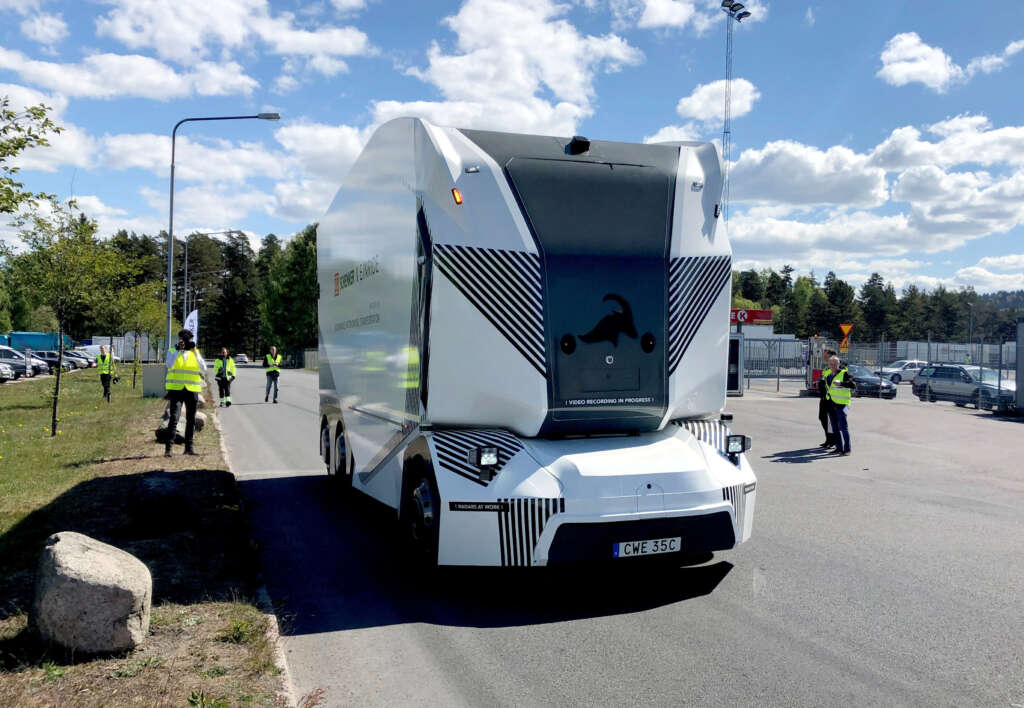
Self-driving truck company Einride expands into Norway
By Johannes Birkebaek
COPENHAGEN (Reuters) – Swedish electric self-driving truck company Einride expects to reduce CO2 emissions in Norway by 2,100 tonnes over the coming three years as it partners up with Scandinavia’s leading postal service, PostNord, the company said on Wednesday.
Norway has the world’s highest number of electric vehicles per head of population and aims for all heavy vehicles to be zero-emission by 2040, potentially cutting CO2 emissions by 4.4 million tonnes or nearly 9% of the country’s annual emissions.
“Given Norway’s pioneering work in electrifying passenger vehicles, it’s only logical that they should take a leading role in the electrification of heavy-duty freight as well,” Einride CEO Robert Falck said.
Using Einride’s electric trucks, PostNord will reduce its fossil-fuel-driven deliveries in Norway by more than 1,500 km (932 miles) per day.
Many goods can be transported with zero-emission vehicles, resulting in a significant environmental benefit, according to assistant director of sustainability at PostNord Norway, May-Kristin Willoch.
Six trucks will be deployed in the Oslo region this month but the goal is to reach 35 electric connected trucks by June 2024.
PostNord will pay a monthly fee which will enable it to access electric and digital service, including the electric trucks that are owned by Einride.
Financial terms of the deal were not disclosed.
Self-driving technology for freight trucks has attracted investor attention in recent years as it is deemed cheaper and easier to roll out than self-driving cars.
Self-driving freight services require less mapping than other technology as they run on fixed routes between predefined points, mostly on major highways without intersections or pedestrians.
Einride’s expansion into Norway will extend the Nordic Link grid, connecting locations in the Oslo region. In the future, the grid will connect Norway, Sweden and Denmark along the E6 highway.
(Reporting by Johannes Birkebaek; Editing by Mark Potter)


